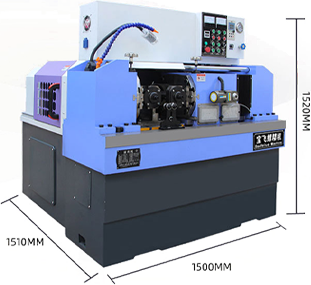
-
 Afrikaans
Afrikaans -
 Albanian
Albanian -
 Amharic
Amharic -
 Arabic
Arabic -
 Armenian
Armenian -
 Azerbaijani
Azerbaijani -
 Basque
Basque -
 Belarusian
Belarusian -
 Bengali
Bengali -
 Bosnian
Bosnian -
 Bulgarian
Bulgarian -
 Catalan
Catalan -
 Cebuano
Cebuano -
 Corsican
Corsican -
 Croatian
Croatian -
 Czech
Czech -
 Danish
Danish -
 Dutch
Dutch -
 English
English -
 Esperanto
Esperanto -
 Estonian
Estonian -
 Finnish
Finnish -
 French
French -
 Frisian
Frisian -
 Galician
Galician -
 Georgian
Georgian -
 German
German -
 Greek
Greek -
 Gujarati
Gujarati -
 Haitian Creole
Haitian Creole -
 hausa
hausa -
 hawaiian
hawaiian -
 Hebrew
Hebrew -
 Hindi
Hindi -
 Miao
Miao -
 Hungarian
Hungarian -
 Icelandic
Icelandic -
 igbo
igbo -
 Indonesian
Indonesian -
 irish
irish -
 Italian
Italian -
 Japanese
Japanese -
 Javanese
Javanese -
 Kannada
Kannada -
 kazakh
kazakh -
 Khmer
Khmer -
 Rwandese
Rwandese -
 Korean
Korean -
 Kurdish
Kurdish -
 Kyrgyz
Kyrgyz -
 Lao
Lao -
 Latin
Latin -
 Latvian
Latvian -
 Lithuanian
Lithuanian -
 Luxembourgish
Luxembourgish -
 Macedonian
Macedonian -
 Malgashi
Malgashi -
 Malay
Malay -
 Malayalam
Malayalam -
 Maltese
Maltese -
 Maori
Maori -
 Marathi
Marathi -
 Mongolian
Mongolian -
 Myanmar
Myanmar -
 Nepali
Nepali -
 Norwegian
Norwegian -
 Norwegian
Norwegian -
 Occitan
Occitan -
 Pashto
Pashto -
 Persian
Persian -
 Polish
Polish -
 Portuguese
Portuguese -
 Punjabi
Punjabi -
 Romanian
Romanian -
 Russian
Russian -
 Samoan
Samoan -
 Scottish Gaelic
Scottish Gaelic -
 Serbian
Serbian -
 Sesotho
Sesotho -
 Shona
Shona -
 Sindhi
Sindhi -
 Sinhala
Sinhala -
 Slovak
Slovak -
 Slovenian
Slovenian -
 Somali
Somali -
 Spanish
Spanish -
 Sundanese
Sundanese -
 Swahili
Swahili -
 Swedish
Swedish -
 Tagalog
Tagalog -
 Tajik
Tajik -
 Tamil
Tamil -
 Tatar
Tatar -
 Telugu
Telugu -
 Thai
Thai -
 Turkish
Turkish -
 Turkmen
Turkmen -
 Ukrainian
Ukrainian -
 Urdu
Urdu -
 Uighur
Uighur -
 Uzbek
Uzbek -
 Vietnamese
Vietnamese -
 Welsh
Welsh -
 Bantu
Bantu -
 Yiddish
Yiddish -
 Yoruba
Yoruba -
 Zulu
Zulu
Advanced Custom Roller Threading Solutions for Precision Manufacturing Needs
The Evolution and Benefits of Custom Roller Threading Machines
In the ever-evolving landscape of manufacturing, threading operations hold a critical position. With a plethora of applications in various industries, the need for precision and efficiency in the threading process has spurred the development of specialized machinery. Among these innovations, custom roller threading machines have emerged as a game-changer, offering tailored solutions for diverse threading requirements.
What is a Custom Roller Threading Machine?
A roller threading machine is designed to create intricate threads on various materials using a rolling process rather than cutting. This technique offers several advantages, including enhanced strength, superior surface finish, and reduced material waste. A custom roller threading machine is specifically engineered to meet the unique specifications of a particular application or material, ensuring optimal performance and flexibility.
Advantages of Using Custom Roller Threading Machines
1. Precision Engineering One of the hallmark features of custom roller threading machines is the precision they offer. Manufacturers can create threads that conform to exact specifications, which is crucial for applications requiring strict tolerances, such as in the aerospace, automotive, and medical industries. Tailoring machines to specific requirements ensures that the final product meets the highest standards of quality and reliability.
2. Increased Efficiency Custom machines can significantly enhance production efficiency. Unlike traditional methods that may require multiple setups or adjustments, a specialized roller threading machine can optimize the threading process for specific materials or designs. This leads to shorter cycle times and reduced downtime, thereby increasing overall productivity.
custom roller threading machine

3. Material Versatility Roller threading machines can work with a wide range of materials, including metals like steel, aluminum, and even softer materials like plastic. By customizing machines to handle specific material properties—such as hardness or ductility—manufacturers can expand their capabilities and cater to a broader market.
4. Cost-Effectiveness While there may be higher initial costs associated with investing in custom machinery, the long-term benefits often outweigh the expenses. The increased efficiency, reduced waste, and lower rework rates associated with roller threading machines lead to substantial savings over time. Additionally, their ability to produce high-quality threads can reduce the likelihood of failures in the final products, further contributing to cost savings.
5. Reduced Environmental Impact The need for sustainability in manufacturing practices has never been more urgent. Custom roller threading machines contribute to eco-friendly operations by minimizing material waste and energy consumption. The rolling process, compared to traditional cutting methods, uses less energy and generates less scrap, aligning with the growing emphasis on environmentally sustainable practices in manufacturing.
Applications of Custom Roller Threading Machines
The versatility of custom roller threading machines opens up a wide range of applications. In the automotive industry, they are used to produce components such as bolts, nuts, and fasteners that require high strength and reliability. The oil and gas sector uses these machines to create strong, durable fittings that can withstand extreme pressures. Furthermore, in electronics, custom threads enhance the reliability of connections and assemblies.
Conclusion
As industries continue to advance and diversify, the demand for innovative manufacturing solutions will only increase. Custom roller threading machines stand at the forefront of this evolution, providing unmatched precision, efficiency, and flexibility. By investing in tailored machinery, manufacturers can ensure they are equipped to meet the challenges of modern production demands. In choosing custom roller threading solutions, businesses not only enhance their operational capabilities but also position themselves favorably in an increasingly competitive marketplace. The future of threading technology is here, and it is custom-made.
